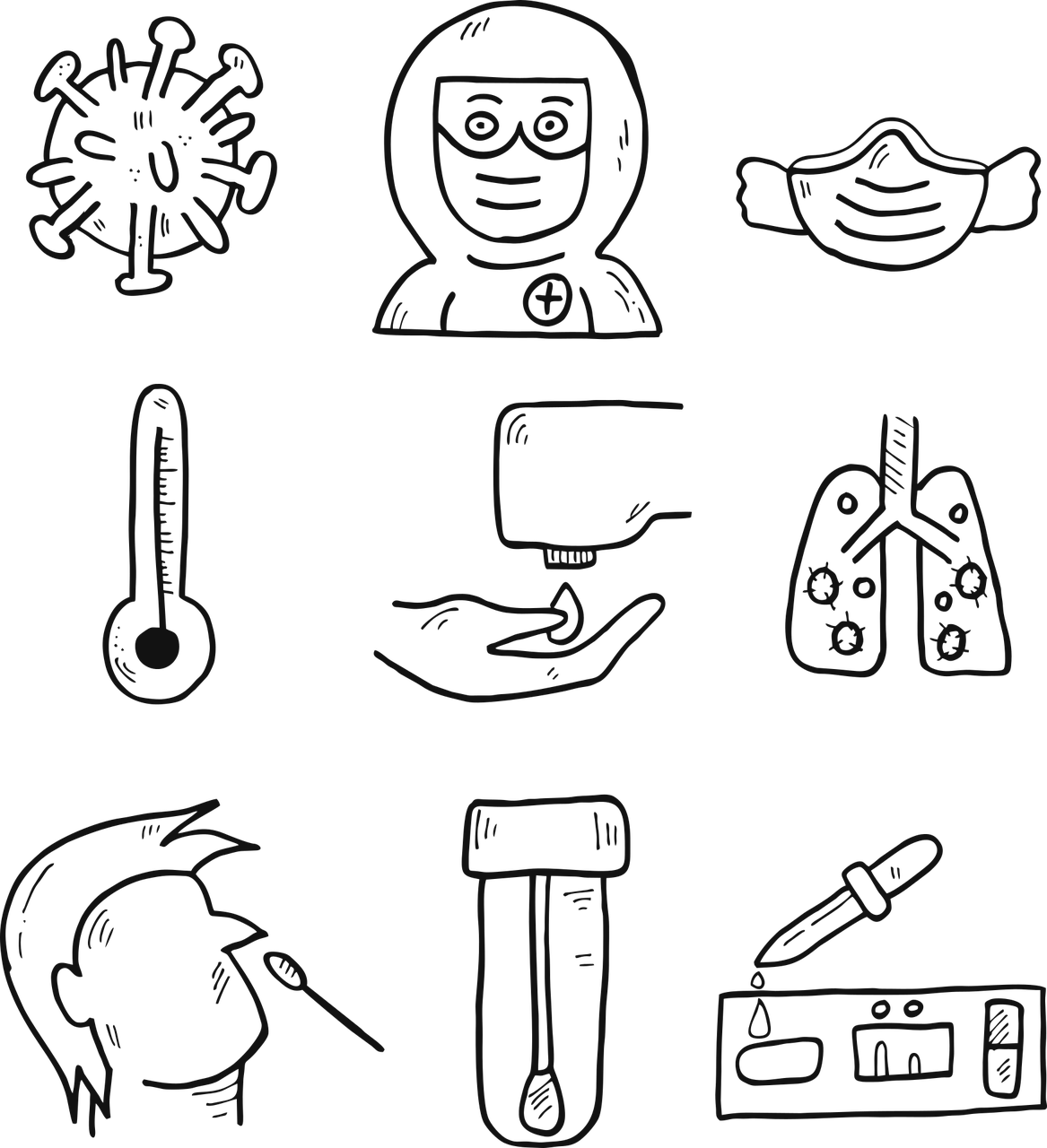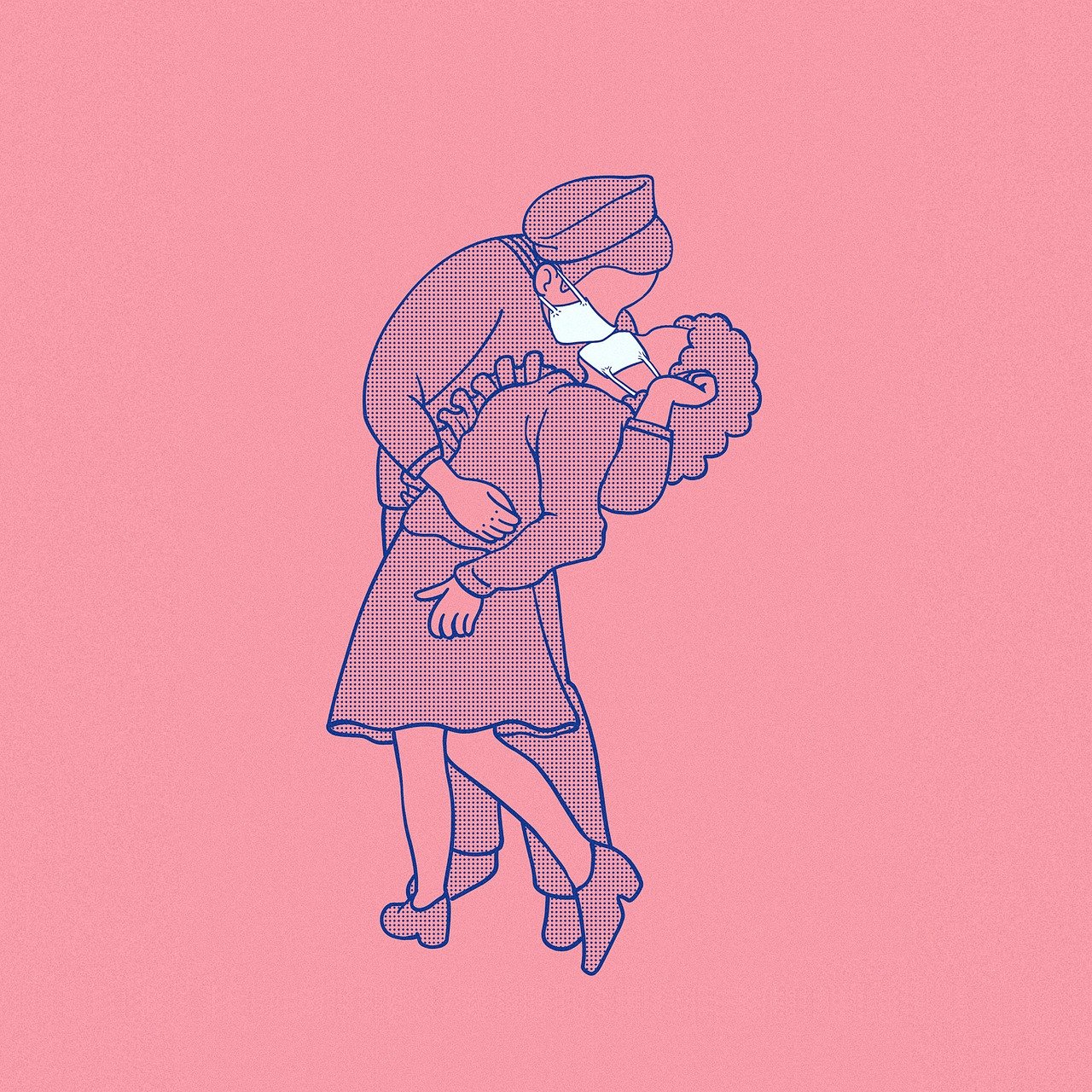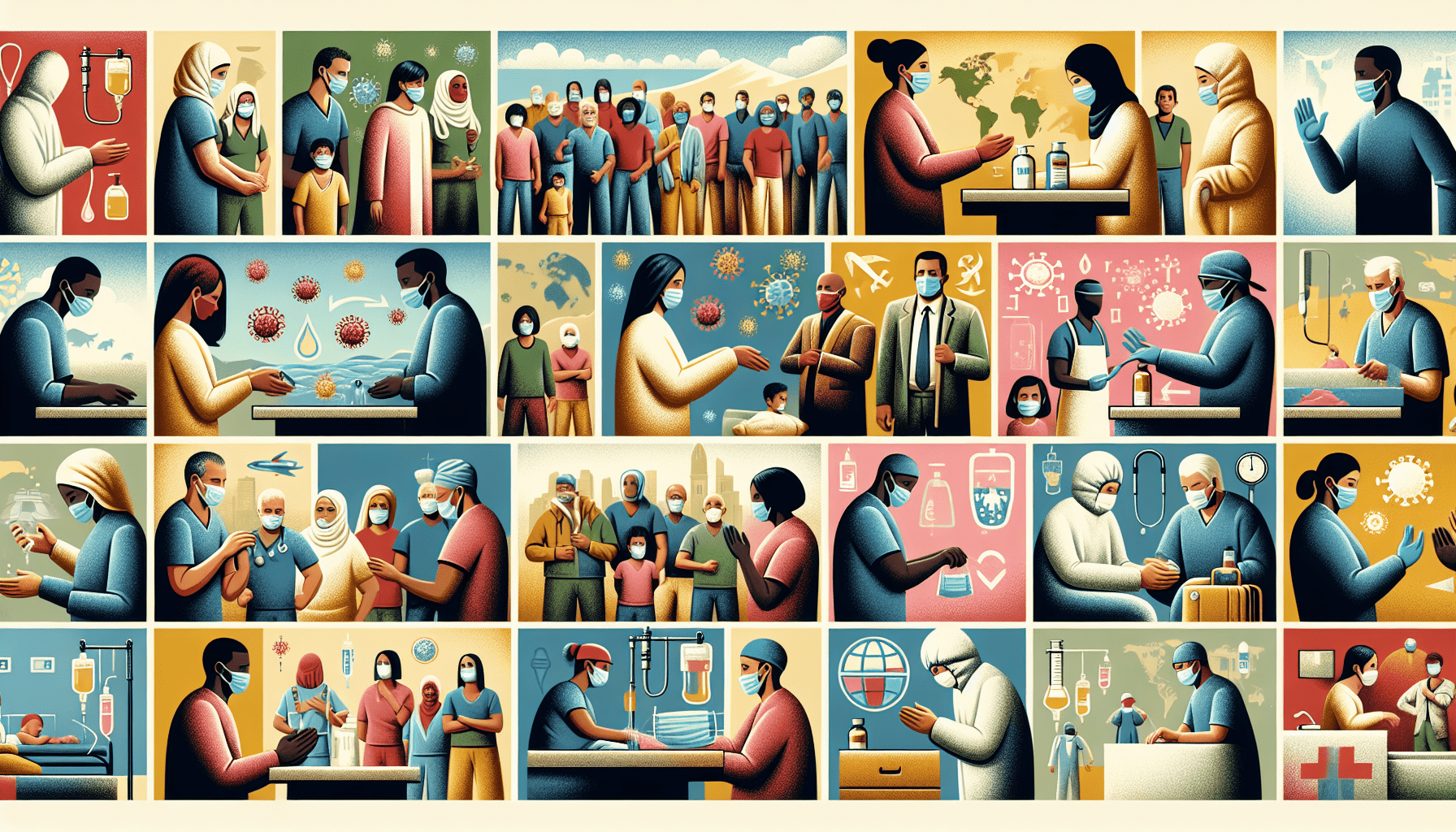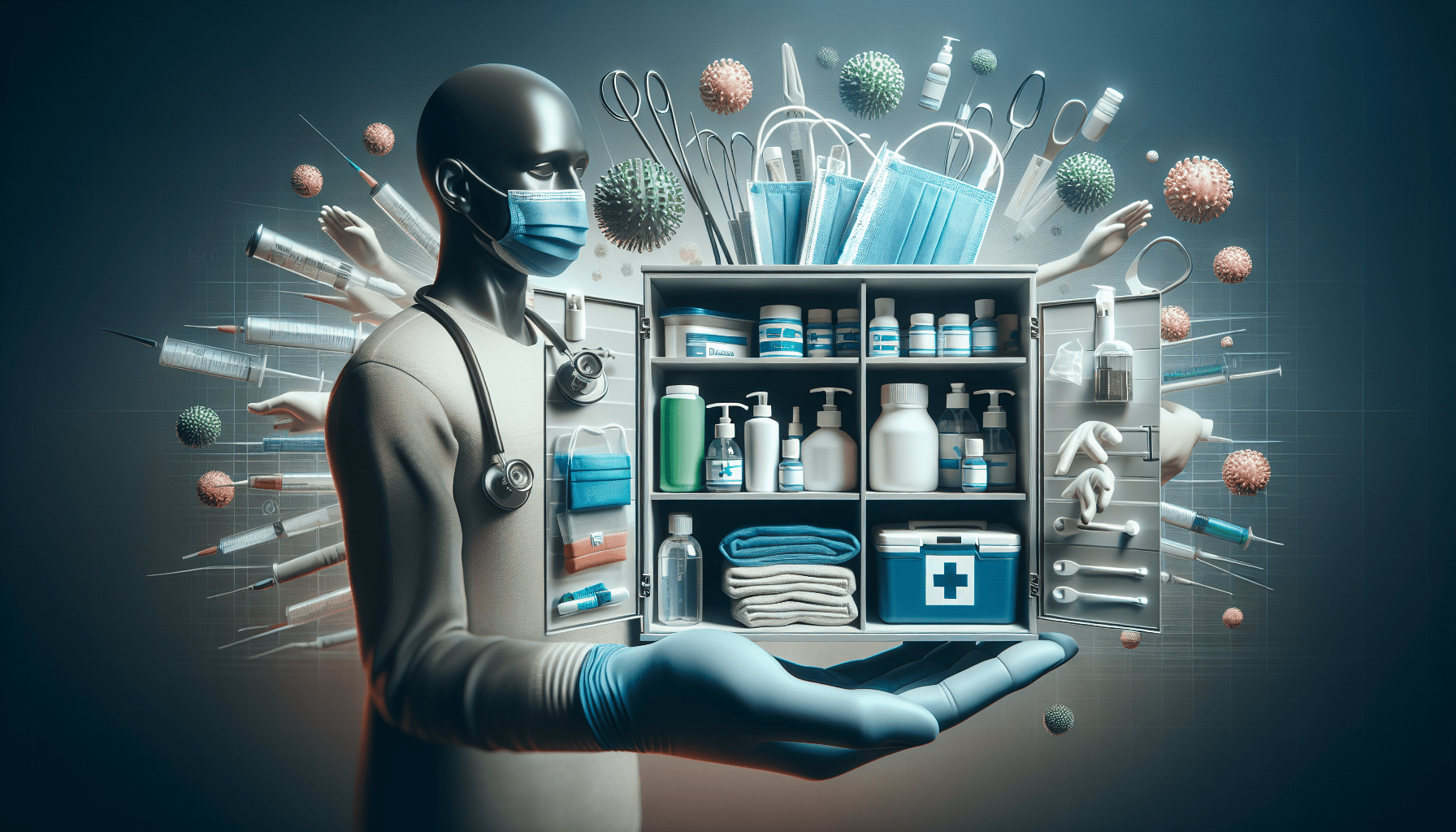In a world where unforeseen health emergencies and pandemics can strike at any moment, it’s crucial to be prepared. Whether it’s a viral outbreak or a natural disaster, having the knowledge and tools to handle such situations can make all the difference. From stocking up on essential supplies to staying informed with the latest updates, this article will explore the best ways for you to proactively prepare for pandemics and health emergencies. By following these tips, you can ensure the safety and well-being of yourself and your loved ones during these challenging times.

Emergency Supplies
Food and Water
When preparing for emergencies, one of the most crucial things to consider is having an adequate supply of food and water. It is recommended to have at least a three-day supply of non-perishable food items that require little to no preparation. Canned goods, boxed meals, and energy bars are great options to have on hand. Additionally, ensure you have a sufficient supply of bottled water, approximately one gallon per person per day. Remember to periodically check expiration dates and replace any expired items in your emergency food and water stash.
Medications
For individuals who take prescription medications regularly, it is vital to have an ample supply of these medications to last through an emergency situation. Keep at least a 30-day supply, if possible, and regularly rotate and replace medications as they near expiration dates. It is also wise to have a basic first aid kit on hand to address minor injuries or illnesses that may occur.
First Aid Kit
Having a well-equipped first aid kit is essential for addressing minor injuries and medical emergencies. Your first aid kit should include items such as adhesive bandages, gauze pads, antiseptic wipes, adhesive tape, over-the-counter pain relievers, tweezers, and scissors. Additionally, consider including items specific to your needs, such as prescription medications or epinephrine auto-injectors if you have allergies. Familiarize yourself with the contents of your first aid kit and ensure it is easily accessible in case of emergencies.
Personal Protective Equipment
Personal protective equipment (PPE) has become increasingly important during health emergencies, such as pandemics. Having a supply of PPE can help protect you and others from potential infections. Include items such as face masks, gloves, hand sanitizers, and disinfectant wipes in your emergency supplies. It is recommended to have multiple sets of PPE, as they may need to be replaced periodically or if they become soiled.
Emergency Communication
Emergency Contacts
During emergencies, it is crucial to have a list of emergency contacts readily available. Include the contact information of family members, friends, neighbors, and your healthcare provider. Ensure that each contact is aware of their role and responsibilities in case of an emergency. It is also beneficial to have a designated out-of-area contact person who can help coordinate communication if local networks are not accessible.
Communication Plan
Developing a communication plan before an emergency occurs can help ensure that you and your loved ones stay connected and informed. Establish a meeting place or a centralized method of communication, such as a group chat or a designated family contact. Determine how you will communicate important information and updates during emergencies. Practice your communication plan regularly to ensure its effectiveness.
Emergency Radio
During times of crisis, access to reliable information is vital. Consider investing in a battery-powered or hand-crank emergency radio. These radios can provide important updates and instructions from local authorities or emergency management agencies, even if other communication channels are disrupted. Familiarize yourself with how to operate the radio and keep fresh batteries on hand.

Emergency Evacuation
Evacuation Plan
In certain situations, emergency evacuation may be necessary to ensure your safety. Create an evacuation plan that includes multiple routes and potential destinations, such as the homes of family or friends outside the affected area, emergency shelters, or designated safe zones. Identify the necessary supplies and documents you would need to take with you during an evacuation, such as identification, important documents, and emergency supplies. Practice your evacuation plan with your household to ensure everyone knows what to do in the event of an evacuation.
Emergency Shelter
During emergencies, it may be necessary to seek shelter in designated emergency shelters. Familiarize yourself with the locations of these shelters in your community. Keep in mind that some shelters may have specific requirements or restrictions, such as not allowing pets. Prepare a basic emergency shelter kit, including items such as bedding, clothing, toiletries, and entertainment options for you and your family.
Transportation
Considering transportation options is an essential aspect of emergency preparedness. Determine how you would travel to a designated shelter or evacuation location if needed. If you have a personal vehicle, keep it well-maintained and have a full tank of gas as part of your emergency preparedness routine. Additionally, familiarize yourself with public transportation routes and alternative modes of transportation, such as bicycles or walking routes, in case regular transportation options are unavailable or unsafe.
Health Information
Medical History
Having a copy of your medical history on hand during emergencies can assist healthcare providers in providing appropriate care. Include relevant information such as current conditions, allergies, medications, and any previous surgeries or hospitalizations. It is recommended to keep a printed copy of this information in your emergency supplies, as well as storing a digital copy on a secure electronic device or cloud storage account.
Emergency Contact Information
Ensure that you have accurate and up-to-date emergency contact information readily available. Include the contact information of your healthcare provider, insurance company, family members, and friends who can assist in times of need. Having this information readily accessible can be crucial, especially if you are unable to communicate your needs personally.
Prescriptions and Allergies
If you take prescription medications or have known allergies, it is essential to have this information readily available during emergencies. Maintain an updated list of your current medications, dosages, and any specific instructions regarding their administration. If you have allergies, communicate these allergies clearly on your emergency medical information. It is also helpful to carry a medication list and allergy information with you in your wallet or purse.

Hygiene Practices
Hand Hygiene
Maintaining proper hand hygiene is crucial during emergency situations, especially when it comes to preventing the spread of infections. Wash your hands frequently with soap and water for at least 20 seconds. If soap and water are not available, use hand sanitizer that contains at least 60% alcohol. Encourage those around you to practice good hand hygiene as well.
Respiratory Hygiene
Proper respiratory hygiene can help prevent the transmission of respiratory infections. Cover your mouth and nose with a tissue or your elbow when coughing or sneezing. Dispose of used tissues properly and immediately wash your hands afterward. If you don’t have a tissue, sneeze or cough into the crook of your elbow to minimize the spread of respiratory droplets.
Proper Disposal of Waste
During emergencies, proper waste disposal is essential to maintain a safe and clean environment. Follow local waste management guidelines and make sure to dispose of waste properly. Sanitize surfaces and objects regularly, especially frequently touched items. Dispose of any potentially contaminated items, such as used gloves or masks, according to the recommended guidelines.
Staying Informed
Follow Official Sources
During pandemics and health emergencies, it’s crucial to rely on accurate and reliable information. Follow updates and guidelines from official sources such as local health departments, national government websites, and international health organizations. Be cautious of misinformation or rumors that can create unnecessary panic or confusion.
Alert Systems
Take advantage of local alert systems that provide emergency notifications via phone, text message, or email. These systems can help keep you informed about potential threats, evacuation orders, and other critical information. Sign up for these systems and ensure your contact information is up-to-date to receive timely alerts during emergencies.
Updates from Health Organizations
Stay informed about the latest developments and recommendations from reputable health organizations. Organizations such as the World Health Organization (WHO) and the Centers for Disease Control and Prevention (CDC) provide valuable guidance and updates regarding public health emergencies. Regularly check their websites or subscribe to their newsletters to receive accurate information directly from trusted sources.

Physical and Mental Well-being
Exercise
Physical activity is essential for maintaining overall health, especially during times of stress or confinement. Engage in regular exercise routines, even if it means modifying them to fit within the constraints of an emergency situation. Perform activities such as stretching, yoga, or bodyweight exercises that can be done indoors or in limited spaces. Exercise helps reduce stress, boosts your immune system, and promotes better sleep.
Stress Management
Pandemics and health emergencies can be highly stressful, so it’s important to prioritize stress management techniques. Practice relaxation techniques such as deep breathing exercises, meditation, or mindfulness. Engage in activities that bring you joy and help distract from the stress of the situation, such as reading, listening to music, or pursuing hobbies. Reach out to supportive friends and family members for emotional support.
Connect with Loved Ones
Maintaining emotional connections with loved ones is vital during challenging times. Use various forms of communication, such as phone calls, video chats, or social media platforms, to stay connected with family and friends. Sharing experiences, concerns, and providing support to one another can make a significant difference in managing your well-being during emergencies.
Supporting Vulnerable Populations
Supporting Elderly and Disabled Individuals
During health emergencies, it is important to extend support to elderly and disabled individuals who may have specific needs. Check on your elderly neighbors or loved ones and offer assistance when possible. Help them acquire necessary supplies and ensure they have access to reliable information. Encourage them to create their own emergency plans and assist them in developing strategies to address their unique needs.
Assisting Low-Income Communities
Health emergencies can disproportionately affect low-income communities. If you are in a position to help, consider volunteering or donating resources to local organizations that support these communities. Offer assistance in identifying available resources such as food banks, financial support programs, or healthcare services. Collaborate with community members to ensure that everyone has access to essential supplies and information.
Providing Mental Health Support
Health emergencies can take a toll on mental health, and it is important to provide support to those struggling emotionally. Encourage open conversations about mental health and promote the utilization of mental health resources. Share information about helplines, online support groups, or virtual therapy services that individuals can access from the comfort of their homes. Offering a listening ear and validating emotions can go a long way in providing mental health support during emergencies.

Emergency Financial Planning
Create an Emergency Fund
Building an emergency fund is an essential part of financial preparedness for emergencies. Set aside a portion of your income regularly to establish a fund that can cover unexpected expenses. Aim to save at least three to six months’ worth of living expenses. Having an emergency fund can help provide financial stability during times of crisis and prevent the need to rely solely on credit or loans.
Review Insurance Policies
Reviewing your insurance policies is crucial to ensure you have appropriate coverage in the event of an emergency. Assess your health insurance, homeowner’s/renter’s insurance, and any other relevant policies to understand what they cover and what might be excluded. Contact your insurance provider with any questions or concerns and consider updating or adjusting your coverage if necessary.
Manage Debts and Expenses
During emergencies, it is important to assess your financial situation and take necessary steps to manage debts and expenses. Prioritize essential expenses such as housing, food, and healthcare. Communicate with lenders or creditors if you are unable to meet payment obligations. Many financial institutions offer hardship programs or payment deferral options during emergencies. Proactively managing your finances can help alleviate financial stress during challenging times.
Community Preparedness
Neighborhood Watch
Collaborating with your neighbors can significantly enhance community preparedness. Form or join a neighborhood watch group to promote safety and emergency preparedness. Share information, resources, and emergency plans with one another. Establish a communication network within your neighborhood to ensure everyone stays informed and connected during emergencies. Together, you can reduce vulnerabilities and enhance community resilience.
Creating Emergency Response Teams
Consider creating or joining local emergency response teams. These teams are comprised of community members trained to provide assistance and support during emergencies. They can help with tasks such as search and rescue, first aid, and distribution of supplies. Engaging in emergency response teams helps strengthen community bonds and fosters a sense of shared responsibility for the well-being of all residents.
Participating in Community Drills
Participating in community drills and exercises is an excellent way to prepare for emergencies. These drills simulate emergency situations and allow residents to practice their preparedness and response plans. Follow local emergency management guidelines and actively participate in drills offered in your community. Identifying areas for improvement and addressing them before an actual emergency occurs can save lives and minimize potential damages.
